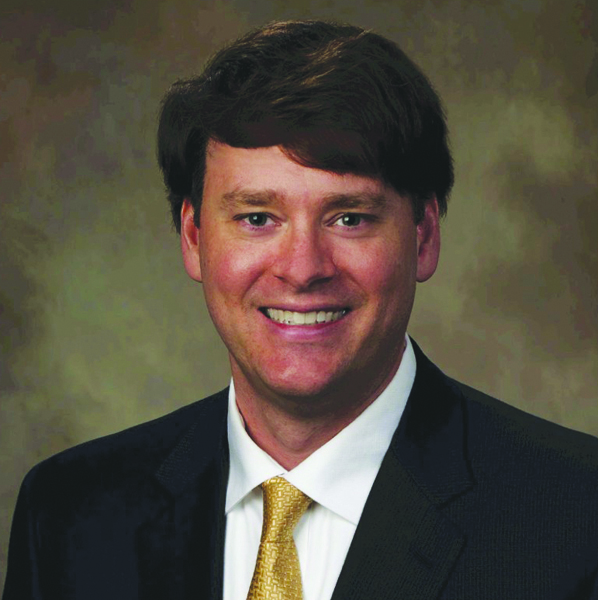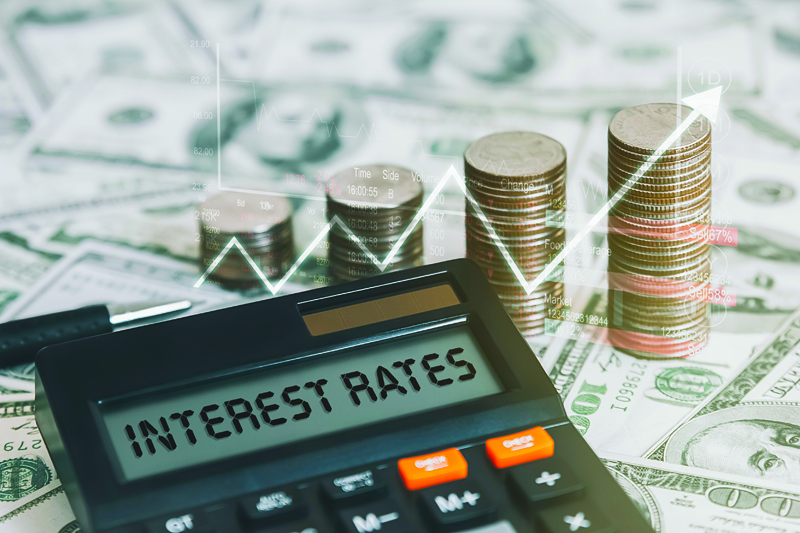Economists predict the Fed will continue cutting rates this year

Most economists anticipate the Federal Reserve will continue cutting interest rates this year, said J. Corey Miller, Ph.D., State Economist for Mississippi and director of the University Research Center.
“Lower interest rates would definitely benefit industries that have to finance purchases of machinery and equipment, such as agriculture, manufacturing and construction,” said Miller. “Prior to the election, most economists forecast the federal funds rate would be under 3.0% by the first quarter of 2026. However, following the election, there are thoughts that we could see some form of fiscal stimulus. If we do, it would result in stronger growth in the economy, but at the same time could lead to higher inflation than is currently forecast.”
The forecasts of the national economy that he uses already assume the tax cuts from 2017 will be extended, so this stimulus would be something beyond that. Miller said the Federal Reserve’s response would probably be to keep interest rates higher for longer in an effort to keep inflation in check. But there’s uncertainty right now following the election as to what policy changes might occur.

Mississippi Bankers Association President, Gordon Fellows, said now that we’re through the election season, the combined effect of political certainty with a reduced interest rate environment has led to an uptick in borrowing activity.
“Bankers around the state are reporting that many businesses that chose to put off activities earlier this year are beginning to make those new investments, and our members are glad to help their local economies move forward,” said Fellows. “Banks have been closely monitoring the interest rate environment over the last years, and there have been challenges. As inflation began to flare up during the pandemic, the Federal Reserve began raising rates to tamper down inflation. The Fed Funds Effective Rate went from near zero in the spring of 2022 to almost 5 percent within 12 months—this speed of increase was really unprecedented.”
Fellows said as these increased rates began to have their desired effects, bankers began anticipating that the Fed would make significant cuts this year. But bankers have said even with the rate cuts, businesses and consumers were still a little bit apprehensive about making new investments.
“We do think the Fed will continue to closely monitor economic activity,” said Fellows. “They don’t want to get into a situation in which increased economic productivity leads to a rebound in inflation, and that’s a trend that central bankers at the Fed and local bankers will be watching. It will be really interesting to see how the economy develops in the new year and if we’ll continue to see the Fed cut rates or if rates may settle in at some point.”

When interest rates fall, opportunities open for many more homebuyers, said Mauro A. Harto, Senior Vice President/Director of Mortgage Banking, Hancock Whitney Bank. A rate drop benefits potential buyers who may have been priced out of the market previously but who now can qualify because of lower monthly payments resulting from the reduced rate.
“With rates having been higher for longer than expected, we anticipate that there will be a push to buy because of pent-up demand,” said Harto. “Many of these potential buyers will jump to take advantage of the lower payments.”
Another trend Harto recommends watching is the movement from renters to buyers. Over the past few years, rental rates have increased; and as interest rates fall, owning a home will be much more appealing for potential homebuyers from a financial standpoint. “Finally, because of higher rates for so long, there has been an increase in inventory, which means there are more choices for potential buyers,” said Harto.

But even though the Fed said they were cutting rates, the market interest rates haven’t gone down that much, said Ken B. Cyree, Ph.D., Dean of the Ole Miss School of Business Administration, Frank R. Day/Miss. Bankers Assoc. Chair of Banking,
“That is just the market saying it felt differently than the Fed,” said Cyree. “There are still concerns about inflation and how that will be impacted by some of the actions Trump is proposing, such as tariffs, immigration enforcement, taxes and industrial policy. It is creating a lot of uncertainty. Some of those things might be good and some might be bad for interest rates and the economy. We just don’t know yet. But we have more certainty than before the election. That is the positive way to view it.”
Cyree said markets definitely don’t like uncertainty, and just the fact that we now know who is president helps. Any time you have change, some people like it and others don’t. “That is what you are seeing, I think,” said Cyree. “The markets are still concerned about inflation. One thing that is difficult for the average lay person to understand is that prices generally don’t go down. Prices are still going up, but we have gradually slowed the rate of increase. We are hardwired for inflation. But that is the normal course of the world that prices tend to go up on average no matter what. We just hope it won’t be very bad.”
The current mortgage rates of about 7 percent in mid-December of 2024 seem high to many people, but Cyree said that rates are low historically. Back in the 1970s, the prime rate was 21 percent and Treasury Securities got up to about 18 percent. Mortgage rates were 16.4 percent in 1981.
But the very low interest rates designed to help people recover from the Covid shutdowns and turmoil couldn’t last forever.
“I think we got a little spoiled by the low interest rates during Covid,” said Cyree. “I wouldn’t look for rates to go much lower. We are back to more normal rates. My advice to young people who want to buy a home is get a job, work hard and pay six percent interest. You can refinance if rates fall.”
Cyree is a big believer in letting the markets decide the price of borrowing money. Over longer periods of time, interest will get to the right spot. Real rates were actually negative when adjusted for inflation during Covid and that is pretty unusual in capital economies.
“That tells me rates have been too low,” said Cyree. “Certainly, after Covid it was necessary, given the lockdown and economic problems. I would let the markets decide. The cure for high prices is high prices. If prices are too high, people quit borrowing money and the rates fall. They will find the equilibrium. It might take a while, three months, nine months or two years, but it usually sorts itself out somewhat quickly.”
Voter exit polls indicate Trump won the election in part because of concerns about inflation. Cyree said for a long time, the Biden administration ignored inflation and pretended it was not going on. Then the Biden administration announced that prices of a Thanksgiving dinner had actually gone down over the previous year and that a family of four could eat Thanksgiving dinner for $50.
“That got widely mocked on social media,” said Cyree. “You can’t even go to McDonalds for that amount of money. Economists who defended it got absolutely roasted. People look at their own experiences, hear what the government is saying, and decide the government is either out of touch or lying. Inflation concerns definitely swayed people. The gaslighting or lack of addressing the actual effects of inflation were very detrimental to Biden, and then Harris when she ran. By the time they made that realization, it was too late. I think immigration was a big part of people’s concerns, too.”


